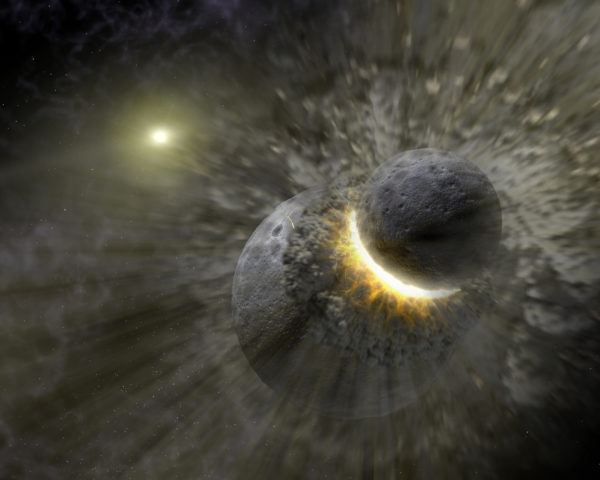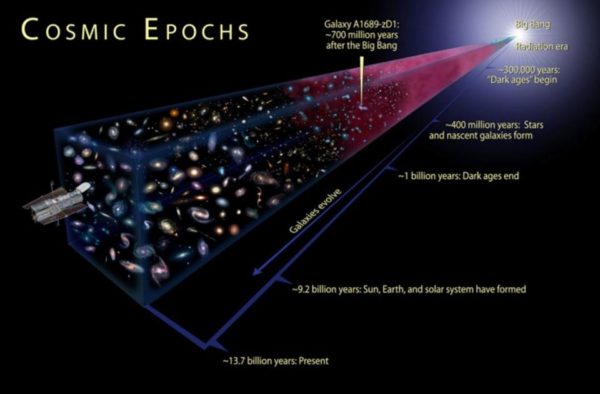"There have to be moments when you glimpse something decent, something life-affirming even in the most twisted character. That's where the real art lies." -Martin McDonagh
There is a whole lot of cosmic detective work we can do to figure out the history of the Solar System. By examining the fossil record, geological deposits, the surface of other planetary bodies, meteors, asteroids and comets, the physics of the Sun, and the various components and layers of Earth, we can reconstruct when and where our planet and the rest of the Solar System came from.
 A massive collision of large planetesimals gave rise to the Earth-Moon system, something we only learned by going to the Moon and returning samples of the lunar surface to Earth. Image credit: NASA/JPL-Caltech/T. Pyle (SSC).
A massive collision of large planetesimals gave rise to the Earth-Moon system, something we only learned by going to the Moon and returning samples of the lunar surface to Earth. Image credit: NASA/JPL-Caltech/T. Pyle (SSC).
But even at that, the Earth and Sun have only been around for 4.5 billion years; less than a third the age of the Universe. Given that once something occurs, its signals propagate outwards at the speed of light, the origin of Earth and what came before it are forever lost to us at our present location. But we can still see all the way back in time to the Big Bang, as long as we’re willing to look a long distance away.


One of the tricky aspects of discussing cosmology is getting past the idea that the universe is a sphere and that the Big Bang happened at the center of the sphere. If that were the case, then the CMB would have already zipped past us as we glide away from the center more slowly than light. But the large scale structure of the universe isn't so intuitive, and that's a big stumbling block that comes up all the time.